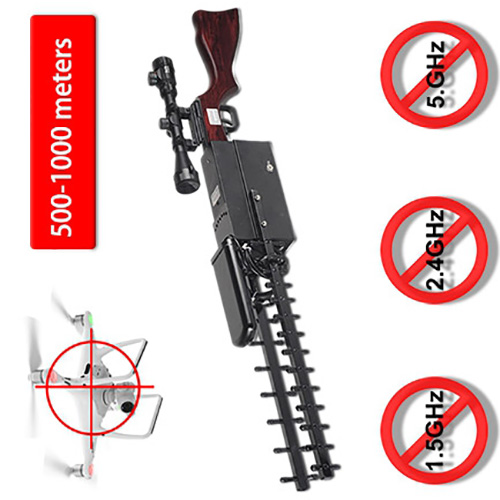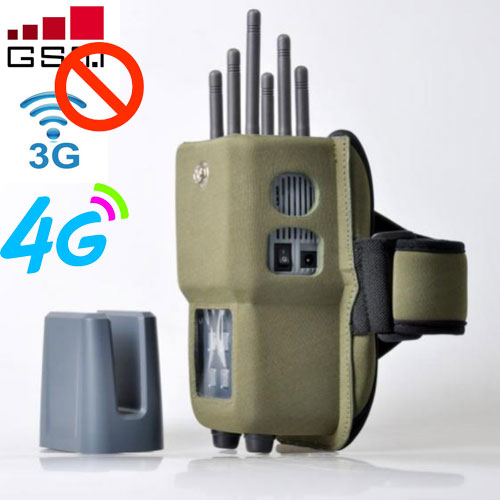For drones that are in an illegal flying state, they need to be reversed through detection and identification technology. At present, drone jammer systems at home and abroad mainly adopt four countermeasures.

Interference blocking class
Electromagnetic interference: It can effectively block the communication between the drone and the console, cut off the remote control signal, digital transmission and graphic transmission signal of the drone, so that the drone enters a self-protection state after the signal is lost, so as to achieve forced landing or The purpose of driving the drone.
Navigation Signal Interference: Civilian UAVs usually use satellite navigation and positioning systems to locate themselves. By realizing navigation signal interference, the interference of drones can be blocked. The UAV cannot be accurately positioned after losing the navigation signal, thus affecting the flight control system of the UAV and limiting the flight of the UAV.
Acoustic Interference: Drones have an important component - gyroscopes, to help drones perceive their own flight status. The drone maintains its own balance through feedback from gyroscopes and control systems. Therefore, if the normal working of the gyroscope can be broken, the drone cannot work properly.
Destroy the class directly
Missiles, laser weapons, microwave weapons, fighting drones, conventional firepower, etc. can all conduct directional attacks on drones to achieve the purpose of directly destroying drones.
However, this method requires high precision and high cost, as well as collateral losses due to drone crashes. Therefore, it is almost impossible to directly destroy UAVs in the civilian field.
Intercept capture class
Another countermeasure is interception and capture from the ground or air. The main methods include: capture net, drone capture, eagle capture, etc. It is more common to use a launcher to eject the capture net, but this method has limited range for the drone. In addition, large drones are used to capture small drones, and large 8-axis drones are used to capture small drones with a huge capture net underneath.
However, this method is difficult to control, and small drones have advantages in terms of flexibility, so they are not widely used. Also, by training the eagles, the drones are captured and brought to the designated area. In order to intercept and capture drones, drones need to be within visual range, so their range is very limited. With the development of UAV obstacle avoidance technology, interception and capture will become more and more difficult.
decoy control
Navigation signal lure: For civilian UAVs equipped with satellite navigation terminals, by transmitting false navigation satellite signals, the UAV navigation terminal can be deceived and confused, so that it is positioned at the false position preset by the system. No-fly zone, home point spoofing, route spoofing, etc. can be achieved through satellite positioning signal lure.
Radio signal hijacking: At present, the control signals used by drones are mostly 2.4GHz and 5.8GHz and other conventional civilian frequency bands. The radio signal hijacking technology is to first crack the communication protocol of the drone signal, and then send a stronger control signal to the drone to gain control of the drone.
Hacking techniques: Many drones on the market are controlled by mobile phones and tablets, and WiFi signal communication is used between the drone and the remote control, so many mature hacking techniques can be used to hijack the drone.





